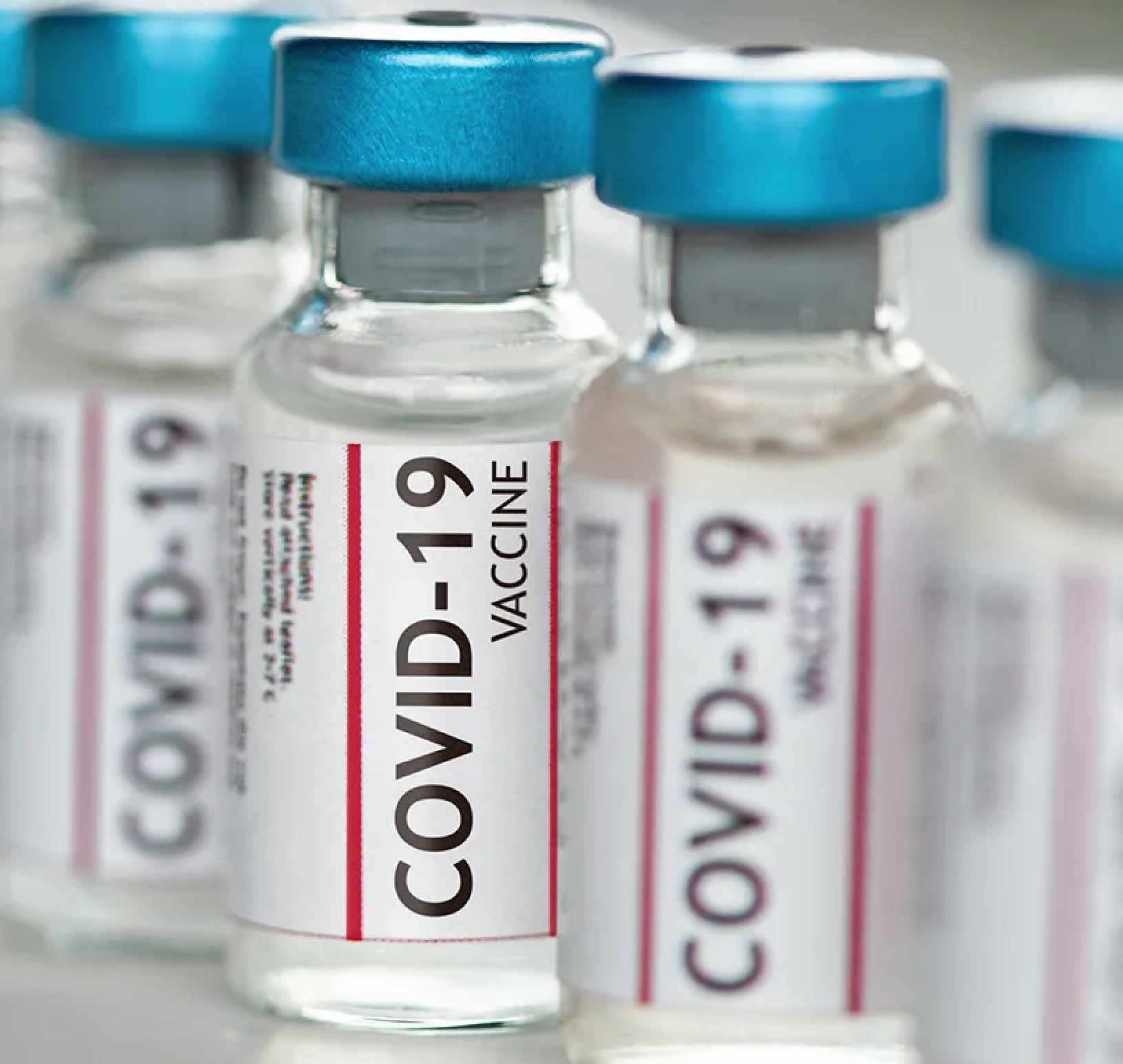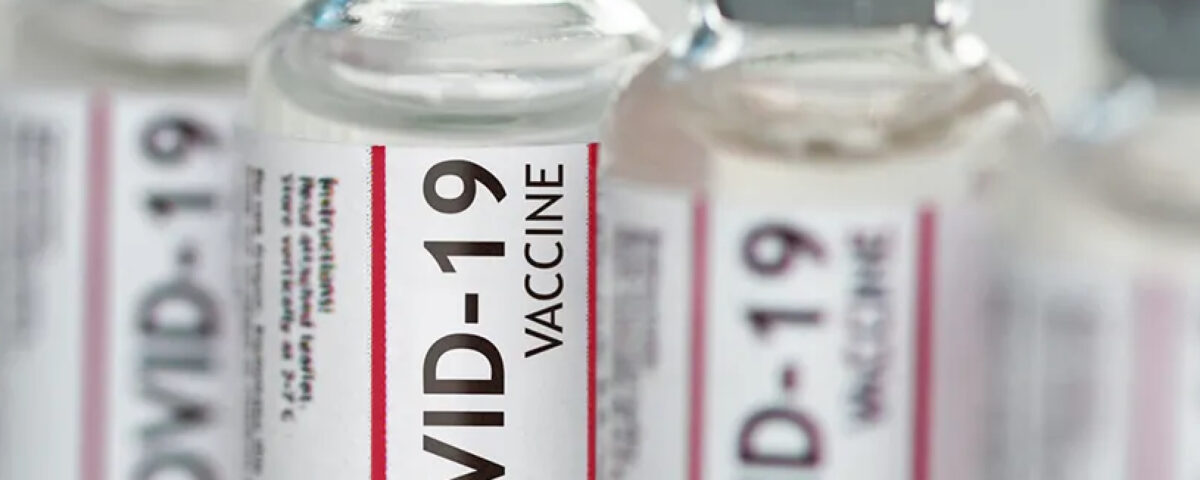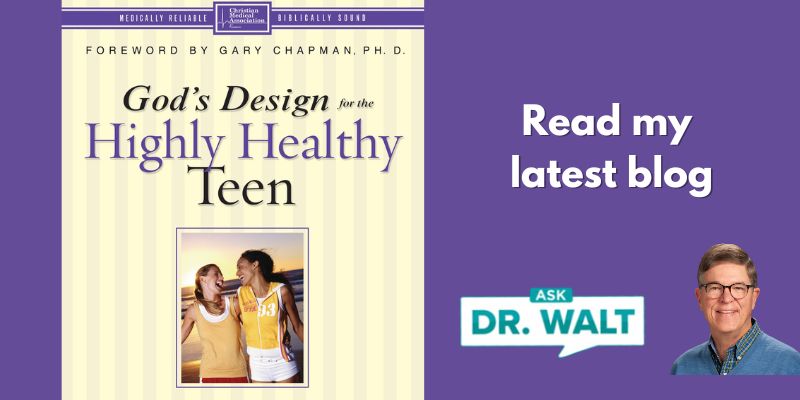The latest evidence on COVID-19 vaccines: What you need to know and what the best science shows

January 31 – February 9, 1944 – A teenage WWII hero sails across the North Atlantic
January 31, 2024
List of my January 2024 Blogs on “Where was Dad 80 years ago today?”
February 1, 2024The latest evidence on COVID-19 vaccines: What you need to know and what the best science shows
This week, I’ve been updating you on the latest evidence on the safety and effectiveness of the COVID vaccines, including the benefits and the risks you need to be aware of . No spin here … just the facts. Here’s some more basic information on the latest scientific evidence. This series is designed to help you become an informed (not misinformed) health care consumer. Blessings on the journey.

I appreciate the expert physicians at the Johns Hopkins School of Medicine and the Mayo Clinic who provided these facts. I hope it will help each of you in understanding this fairly common delusion (or fixed false believe) that COVID vaccines have been far more harmful than helpful.
A 2023 Pew Research study found, “Overall, a majority of Americans believe the benefits of the coronavirus vaccines outweigh the risks and tend to align with the idea that COVID-19 vaccines have saved millions of lives;” however, “At the same time, fewer than half consider the preventative health benefits of the vaccines to be high and more describe the risk of side effects as medium or high than view them as low.” Thus, “In a sign of limited public enthusiasm for COVID-19 vaccines, only about a third of U.S. adults have the highest level of available protection against the coronavirus.”
What is the bottom line?
The COVID-19 vaccines are very good at preventing serious illness, hospitalization, and death. Because the virus that causes COVID-19 continues to change, vaccines are updated to help fight the disease. You can “Stay Up-To-Date with COVID vaccines here. This site was last updated January 18, 2024 .
What is the COVID-19 vaccine?
The COVID-19 vaccine lessens the severity of COVID-19 by teaching the immune system to recognize and fight the virus that causes the disease.
Is the COVID-19 vaccine safe?
Yes. COVID-19 vaccines approved by the FDA meet rigorous testing criteria and are safe and effective at preventing serious illness, hospitalization, and death. Millions of people have received the vaccines, and the CDC continues to monitor their safety and effectiveness as well as rare adverse events.
Is the COVID-19 vaccine safe?
Here’s what the science says about COVID-19 vaccine myths:
- COVID-19
COVID-19 vaccines don’t cause you to become sick with COVID-19. The COVID-19 vaccines authorized for use in the U.S. don’t contain the live virus that causes COVID-19. Some people may have side effects from the vaccine, such as a fever or muscle pain. But these symptoms usually go away in a few days. - Fertility
Currently, there is no evidence that any COVID-19 vaccine causes fertility problems. COVID-19 vaccination is recommended for people who are trying to become pregnant or might become pregnant in the future. - Microchips
COVID-19 vaccines won’t track your location or movements. COVID-19 vaccines were developed to help the body develop immunity to the virus that causes COVID-19. Also, COVID-19 vaccines don’t contain preservatives, antibiotics, metals, or aborted fetal tissues or cells. - DNA
COVID-19 vaccines deliver instructions to teach the body how to build protection against the COVID-19 virus. The Pfizer BioNTech and the Moderna COVID-19 vaccines use genetically engineered messenger RNA (mRNA). The mRNA gives cells instructions for how to make a piece of protein found on the surface of the COVID-19 virus. The protein is then displayed on the surface of cells in the body. Once the immune system recognizes that the protein doesn’t belong there, it makes antibodies to fight off what looks like an infection. After the mRNA delivers instructions, it’s immediately broken down. It doesn’t enter the nucleus of the cells, where the DNA is kept. COVID-19 vaccines don’t change your DNA.
Other COVID-19 prevention myths include:
- Natural immunity
It’s safer to build immunity from a COVID-19 vaccine than it is to develop immunity from getting sick with COVID-19. Vaccine side effects are often mild and predictable. But the severity of COVID-19 varies from person to person. And some people can get seriously ill. Also, vaccines give the highest level of protection against COVID-19, even for people who have already gotten sick with COVID-19. - Pneumonia and flu vaccines
Vaccines against pneumonia, such as the pneumococcal vaccine, don’t protect against the COVID-19 virus. The flu shot also won’t protect you against the COVID-19 virus. However, annual flu vaccinations are recommended for everyone age six months and older. - High temperatures
Exposure to the sun or to temperatures higher than 77 F (25 C) doesn’t prevent infection with the COVID-19 virus or cure COVID-19 illness. You can get the COVID-19 virus in sunny, hot and humid weather. Taking a hot bath also can’t prevent you from catching the COVID-19 virus. Your normal body temperature remains the same, regardless of the temperature of your bath or shower. - Low temperatures
Cold weather and snow also can’t kill the COVID-19 virus. - Drinking alcohol
Consuming alcoholic beverages doesn’t protect you from the COVID-19 virus. - Garlic
There’s no evidence that eating garlic protects against infection with the COVID-19 virus. - Ultraviolet (UV) disinfection lamp
Ultraviolet light can be used as a disinfectant on surfaces. But don’t use a UV lamp to sterilize your hands or other areas of your body. UV radiation can cause skin irritation. - 5G mobile networks
Avoiding exposure to or use of 5G networks doesn’t prevent infection with the COVID-19 virus. Viruses can’t travel on radio waves and mobile networks. The COVID-19 virus has spread in many countries that lack 5G mobile networks. - Disinfectants
When applied to surfaces, disinfectants can help kill germs such as the COVID-19 virus. However, don’t use disinfectants on your body, inject them into your body or swallow them. Disinfectants can irritate the skin and be toxic if swallowed or injected into the body. Also, don’t wash produce with disinfectants. - Supplements
Many people take vitamin C, zinc, green tea or echinacea to boost their immune systems. But these supplements are unlikely to prevent you from getting sick. The supplement colloidal silver, which has been marketed as a COVID-19 treatment, isn’t safe or effective for treating any disease. Oleandrin, an extract from the toxic oleander plant, is poisonous and shouldn’t be taken as a supplement or home remedy.
COVID-19 treatment myths
Misinformation about COVID-19 treatments has led to serious harm and death.
These drugs, products and methods aren’t recommended to treat COVID-19:
- Antibiotics
Antibiotics kill bacteria, not viruses. However, people hospitalized due to COVID-19 might be given antibiotics because they also have developed a bacterial infection. - Alcohol and chlorine spray
Spraying alcohol or chlorine on your body won’t kill viruses that have entered your body. These substances also can harm your eyes, mouth and clothes. - Ivermectin (more on this in my 1/31/24 blog)
This drug is often used in the U.S. to treat or prevent parasites in animals. In humans, specific doses of ivermectin tablets can be used to treat parasitic worms. Also, a topical version can be applied to the skin to treat head lice and skin conditions in humans. However, ivermectin isn’t a drug for treating viruses. The Food and Drug Administration (FDA) hasn’t approved the use of this drug to treat or prevent COVID-19. Taking large doses of this drug can cause serious harm. Don’t use medications intended for animals on yourself.
Focus on facts
The FDA continues to remove misleading products from store shelves and online marketplaces. In the meantime, remember that testimonials aren’t a substitute for scientific evidence. Also, few diseases can be treated quickly, so beware of quick fixes. A miracle cure that claims to contain a secret ingredient is likely a hoax.
If you have a question about a product, drug or method for treating or preventing infection with the COVID-19 virus, talk to your health care team. To ask a question about a COVID-19 medication, you can call your local pharmacist or the FDA’s Division of Drug Information.
Effective COVID-19 prevention tips
There are steps you can take to reduce your risk of infection. When possible, get a COVID-19 vaccine. Also, stay up to date with COVID-19 vaccines to prevent serious illness. You’re considered up to date with your vaccines if you’ve gotten all recommended COVID-19 vaccines, including booster doses when you become eligible.
If you’re up to date with your vaccines, you can more safely return to activities you might not have been able to do because of the pandemic. However, if you are in an area with a high number of people with COVID-19 in the hospital and new COVID-19 cases, the Center for Disease Control and Prevention (CDC) recommends wearing a mask indoors in public.
You can take many steps to reduce your risk of infection from the COVID-19 virus and reduce the risk of spreading it to others.
The CDC recommends following these precautions:
- Avoid close contact with anyone who is sick or has symptoms.
- Keep distance between yourself and others when you’re in indoor public spaces if you’re not fully vaccinated. This is especially important if you have a higher risk of serious illness. Keep in mind that some people may have COVID-19 and spread it to others, even if they don’t have symptoms or don’t know they have COVID-19.
- Avoid crowds and indoor places that have poor airflow (ventilation).
- Wash your hands often with soap and water for at least 20 seconds or use an alcohol-based hand sanitizer that contains at least 60% alcohol.
- Wear a face mask in indoor public spaces if you’re in an area with a high number of people with COVID-19 in the hospital, whether or not you’re vaccinated. The CDC recommends wearing the most protective mask possible that you’ll wear regularly, fits well and is comfortable.
- Cover your mouth and nose with your elbow or a tissue when coughing or sneezing. Throw away the used tissue. Wash your hands right away.
- Avoid touching your eyes, nose and mouth.
- Avoid sharing dishes, glasses, bedding and other household items if you’re sick.
- Clean and disinfect high-touch surfaces, such as doorknobs, light switches, electronics and counters, regularly.
- Stay home from work, school and public areas and stay home in isolation if you’re sick, unless you’re going to get medical care. Avoid taking public transportation, taxis and ride-hailing services if you’re sick.
If you have a chronic medical condition and may have a higher risk of serious illness, check with your health care provider about other ways to protect yourself.
How is the 2023-2024 COVID-19 vaccine different from previous COVID-19 vaccines?
The 2024 COVID-19 vaccine targets XBB.1.5, a subvariant of Omicron. While none of the variants currently circulating are exact matches to the vaccine, they are all closely related to the XBB.1.5 strain. Studies show that the updated vaccine is effective against the variants currently causing the majority of COVID-19 cases in the U.S.
Who should get a COVID-19 vaccine?
Because the 2023-2024 vaccine is effective for recent strains of COVID-19, it is recommended that everyone stay up to date with this vaccine. Previous vaccines or boosters were not developed to target the more recent strains. For 2023–2024, the CDC recommends:
- Everyone age 5 and older receive one shot of the updated vaccine.
- Children ages 6 months to 4 years may need more than one shot to be up to date.
- People who are moderately or severely immunocompromised may need more than one shot.
You can review the full recommendations on the CDC’s Stay Up to Date with COVID-19 Vaccines webpage. Be sure to talk to your primary care doctor or pediatrician if you are unsure about vaccine recommendations.
What are the side effects of the COVID-19 vaccine?
Side effects vary and may last one to three days. Common side effects are:
- Soreness at the injection site
- Fatigue
- Headache
- Body aches
- Fever
COVID-19 Vaccine and Pregnancy
COVID-19 vaccines approved by the Food and Drug Administration (FDA) are safe and recommended for people who are pregnant or lactating, as well as for those r intending to become pregnant.
People who are pregnant or were recently pregnant are at a greater risk for severe COVID-19. Having a severe case of COVID-19 while pregnant is linked to a higher risk of pre-term birth and stillbirth and might increase the risk of other pregnancy complications.
What should parents know about the COVID-19 vaccine and children?
The CDC recommends the 2023–2024 vaccine for adolescents and teenagers ages 12 and older, and for children ages 6 months through 11 years.
- Children age 5 and older need one shot of the updated vaccine.
- Children ages 6 months to 4 years may need more than one shot to be up to date.
Children are less likely to become seriously ill from COVID-19 than adults, although serious illness can happen. Speak with your pediatrician if you have questions about having your child vaccinated.
If I recently had COVID-19, do I need a 2023-2024 vaccine?
If you recently had COVID-19, the CDC recommends waiting about three months before getting this updated vaccine. If you encounter the virus again, having the updated vaccine will:
- Lessen your risk of severe disease that could require hospitalization
- Reduce the chance that you infect someone else with COVID-19
- Help keep you protected from currently circulating COVID-19 variants
How long should I wait to get this vaccine if I recently had an earlier version of a COVID-19 vaccine or booster?
People age 5 years and older should wait at least two months after getting the last dose of any COVID-19 vaccine before receiving the 2023–2024 vaccine, according to CDC guidance.
Is natural immunity better than a vaccine?
Natural immunity is the antibody protection your body creates against a germ once you’ve been infected with it. Natural immunity to the virus that causes COVID-19 is no better than vaccine-acquired immunity, and it comes with far greater risks. Studies show that natural immunity to the virus weakens over time and does so faster than immunity provided by COVID-19 vaccination.
Do I need a COVID-19 booster?
The 2023–2024 vaccine is a one-shot vaccine for most people, and there is no booster this season. (People who are immunocompromised or ages 6 months to 4 years may need more than one 2023–2024 vaccine.)
The FDA calls this an updated vaccine (not a “booster” like previous shots) because it builds a new immune response to variants that are currently circulating. This change reflects the current approach of treating COVID-19 similarly to the flu, with preventive measures such as an annual vaccination.
When should I get a COVID-19 vaccine?
Like the flu and other respiratory diseases, COVID-19 tends to be more active in the fall and winter, so getting a vaccine in the fall is recommended.
How quickly does the COVID-19 vaccine become effective?
It usually takes about two weeks for the vaccine to become effective. The CDC website provides more information on how the COVID-19 vaccines work.
How long does the COVID-19 vaccine last?
Studies suggest that COVID-19 vaccines are most effective during the first three months after vaccination.
Is it safe to get a flu and COVID-19 vaccine at the same time?
Yes, it safe to get both shots at the same time. Keep in mind that each has similar side effects and you may experience side effects from both.
Where can I get a COVID-19 vaccine?
The COVID-19 vaccine is available at pharmacies. See vaccines.gov to find a convenient location.
© Copyright WLL, INC. 2024. This blog provides healthcare tips and advice that you can trust about a wide variety of general health information only and is not intended to be a substitute for professional medical advice, diagnosis, or treatment from your regular physician. If you are concerned about your health, take what you learn from this blog and meet with your personal doctor to discuss your concerns.





2 Comments
Thank you Doc for this post, it has answered many questions that I have had regarding covid and the vaccines.
Connie,
Thanks for the note. And, you’re welcome. Feel free to pass this along to family and friends.
Dr. Walt